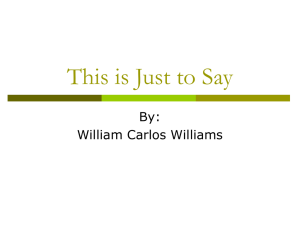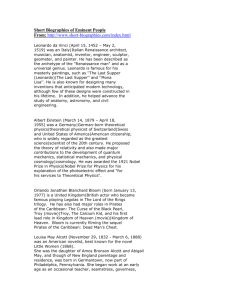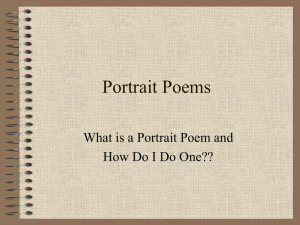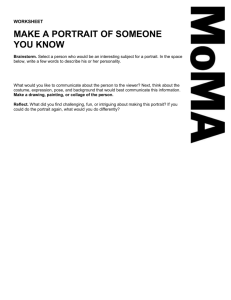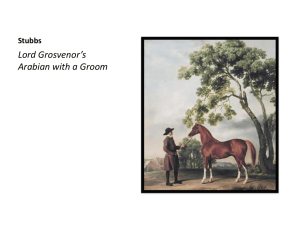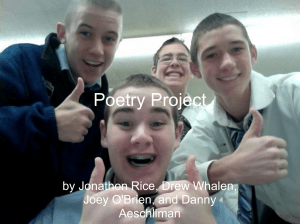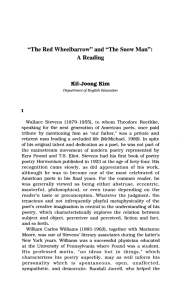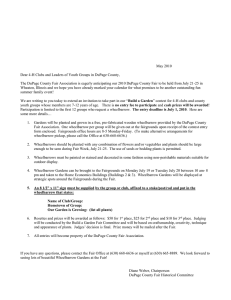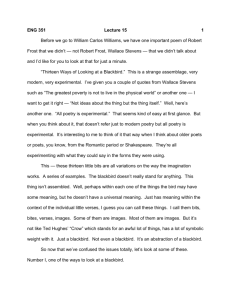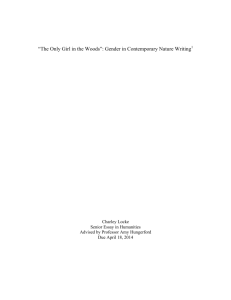OCR Document
advertisement
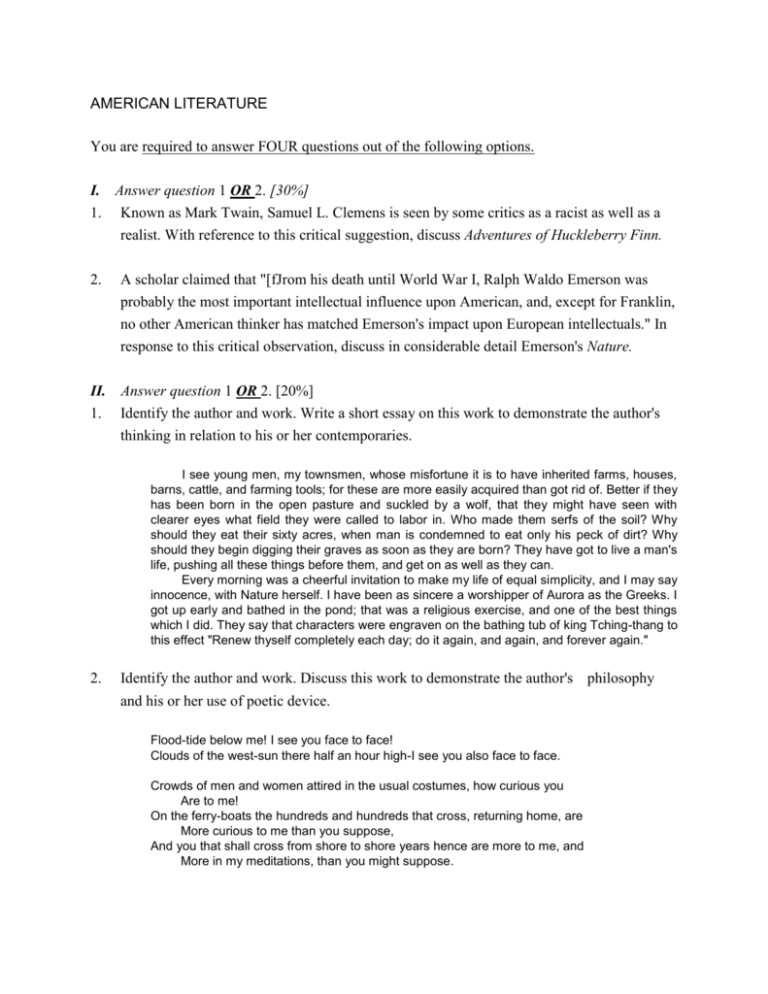
AMERICAN LITERATURE You are required to answer FOUR questions out of the following options. I. Answer question 1 OR 2. [30%] 1. Known as Mark Twain, Samuel L. Clemens is seen by some critics as a racist as well as a realist. With reference to this critical suggestion, discuss Adventures of Huckleberry Finn. 2. A scholar claimed that "[fJrom his death until World War I, Ralph Waldo Emerson was probably the most important intellectual influence upon American, and, except for Franklin, no other American thinker has matched Emerson's impact upon European intellectuals." In response to this critical observation, discuss in considerable detail Emerson's Nature. II. Answer question 1 OR 2. [20%] 1. Identify the author and work. Write a short essay on this work to demonstrate the author's thinking in relation to his or her contemporaries. I see young men, my townsmen, whose misfortune it is to have inherited farms, houses, barns, cattle, and farming tools; for these are more easily acquired than got rid of. Better if they has been born in the open pasture and suckled by a wolf, that they might have seen with clearer eyes what field they were called to labor in. Who made them serfs of the soil? Why should they eat their sixty acres, when man is condemned to eat only his peck of dirt? Why should they begin digging their graves as soon as they are born? They have got to live a man's life, pushing all these things before them, and get on as well as they can. Every morning was a cheerful invitation to make my life of equal simplicity, and I may say innocence, with Nature herself. I have been as sincere a worshipper of Aurora as the Greeks. I got up early and bathed in the pond; that was a religious exercise, and one of the best things which I did. They say that characters were engraven on the bathing tub of king Tching-thang to this effect "Renew thyself completely each day; do it again, and again, and forever again." 2. Identify the author and work. Discuss this work to demonstrate the author's philosophy and his or her use of poetic device. Flood-tide below me! I see you face to face! Clouds of the west-sun there half an hour high-I see you also face to face. Crowds of men and women attired in the usual costumes, how curious you Are to me! On the ferry-boats the hundreds and hundreds that cross, returning home, are More curious to me than you suppose, And you that shall cross from shore to shore years hence are more to me, and More in my meditations, than you might suppose. IlI. Answer either question 1 OR 2. [25%] 1. It is generally agreed that a relation exists between the poetry of Imagism and painting. In William Carlos Williams's lyric "Red Wheelbarrow" there is an image. Do you see any relationship between this poem and the Imagist poems? "Red Wheelbarrow" is said to be a poem that "assumes a puzzling portentousness, the sort of portentousness that any object, even the simplest and most ordinary (in this case the wheelbarrow), assumes when we fix attention exclusively on it and cut it off from the rest of the world." With reference to such portentousness, explain how the poem exemplifies Williams's ideas of poetry as manifested in his statement "no idea but in things." 2. Compare and analyze the social satirical elements in the following texts: Ezra Pound's "Portrait d'une Femme," T. S. Eliot's "The Love Song of J. Alfred Prufrock," William Carlos Williams's "Portrait of a Lady," and Henry James's The Portrait of a Lady. IV. Answer either question 1 OR 2. [25%] 1. Discuss how modern American dramatists such as Eugene 0 'Neill, Tennessee Williams, Edward Albee, and Arthur Miller sought, in their works, to disclose the atrophy and hypocrisy of the bourgeois society and foreground the inescapable realities of disillusionment and frustration. 2. It is said that there are two kinds of novelists: those who are preoccupied with verbal technique, and those who are concerned with human acts and passions. But there are also novelists who like to expound the techniques of the novel through their characters. Select, among Dreiser; Anderson, Fitzgerald, Faulkner, Hemingway, Pynchon, and Morrison, three modern American novelists and discuss their works in terms of the above categorization of the novelist's concern in writing.
